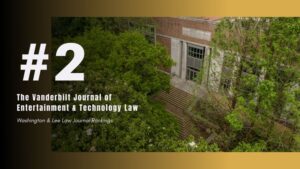Embracing the Future: The Rise of AI-Generated Art
By David Black
In the rapidly evolving landscape of creative expression, the emergence of generative Artificial Intelligence (AI) presents both exhilarating possibilities and profound challenges. As society witnesses AI’s expanding application and scope, particularly in the realm of artistry and creativity, fundamental questions arise: Are we prepared, or even willing, to embrace the new artists that AI will inevitably produce? Read more in David Black’s new post here.
The Legal Questions Surrounding the TSA’s Facial Recognition Program
By Robert Lowell
The Transportation Security Administration (TSA) has been rapidly expanding a pilot program implementing facial recognition technology (FRT) into its security screening checkpoints at airports across the country. The program’s rollout began just a couple of years ago, in 2020. In mid-2023, FRT had already been implemented at 25 major US airports and the agency indicated that it would continue this expansion at rapid pace—to over 400 airports within the next “several years.” Read more about the program in Robert’s new blog post here.
JETLaw in the News: 2022 Washington & Lee Law Journal Rankings
Released on July 15, 2023, the 2022 Washington & Lee Law Journal Rankings provide citation data and calculated ranks for the top 400 U.S.-published law journals and the top 100 law jou rnals published outside the United States. The survey span of the 2022 ranking is five years (2018-2022). This year, continuing its trend of academic and scholarly excellence, the Vanderbilt Journal of Entertainment and Technology Law placed within the top 50 best specialized journals, alongside a placement as the #2 ranked journal in the “Arts, Entertainment, and Sports Law” category and as the #9 ranked journal for the “Science, Technology, and Computing” category.
rnals published outside the United States. The survey span of the 2022 ranking is five years (2018-2022). This year, continuing its trend of academic and scholarly excellence, the Vanderbilt Journal of Entertainment and Technology Law placed within the top 50 best specialized journals, alongside a placement as the #2 ranked journal in the “Arts, Entertainment, and Sports Law” category and as the #9 ranked journal for the “Science, Technology, and Computing” category.
JETLaw in the News: Of DNA & Agriculture
In recent months, JETLaw has been cited in a number of articles and publications across the country, covering a wide variety of topics including DNA processing, anticultural issues, antitrust and FTC merger policy, and artificial intelligence. Check out some of these recent works below, and congratulations to the cited authors for their ongoing impact to global law and policy.
